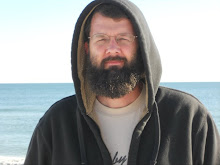
It is a novel idea for many that we can choose to be happy or not to be happy. In fact, much of the self-help world is built upon helping people become happy through the general premise that we have the power to do so. Much of psychotherapy is about helping people become aware of their negative thoughts and patterns and making different choices that will lead them toward the life of happiness and contentment that they want.
Yet we are ever drawn to look to the external conditions of our lives for the catalysts that leads to happiness or misery. We feel happy because of content family relationships, healthy friendships, feeling valued at work and getting the recognition that we feel we deserve. When we feel happy, content or at peace, we may often be able to identify the external factors that have contributed to that state of being. On the other hand, when we feel depressed, anxious, angry, or gloomy, we can usually identify very easily the things in our lives that have brought us to such a low place. If only our lives were different, if my spouse were more loving, if my boss wasn't such a jerk, if I had gotten that promotion, etc., then we would be happy. In such thinking, we are helpless victims to the activities of those around us. Our happiness in this scenario would be determined by someone else's actions.
Luckily, our happiness is not determined by others. All we must do to be happy is just simply...... choose to be happy. Easier said than done, you say? I couldn't agree more. So let me offer a simply and easy to remember (and forget) insight: to remain content and at peace choose to stay in a state of gratitude. From your first moment of waking to your closing prayers at night and at every moment of awareness in between choose to have an attitude of gratitude. To be happy and content is to be grateful for one's life. Show me a person who is grateful for their lives and I'll show you a happy person.
Of course we run into obstacles all throughout the day that interfere with this process. We are grateful for our children right until the point we find ourselves becoming aggravated at something they have done (or won't do) and suddenly we are not feeling too grateful and not too happy either. All we must do, once we realize that we have left the land of gratefulness is to return to it. To often when we hit obstacles that threaten our contentment and our thoughts of gratefulness leave us, we spend the rest of the day feeling a little less joyful. The key here (and with most other things of this nature) is to stay in the present moment and return to your state of gratitude. This doesn't come easy for some of us, but practice improves the success rate at maximizing your moments of gratefulness. Learning to pray constantly, using the Jesus Prayer or other prayers, can be an important step to developing serenity without leaving the Christian tradition and importing mantras or tools from other traditions. Not that other faith traditions or religions don't have some things worth sharing, but there is plenty worth mining in our own ancient traditions. More on that another time.
As important the insight of gratitude is to developing a spirit of contentment, the central focus for us must be developing the awareness of choice. We all go through hardships and sufferings, trials and pains, work stress and relational difficulties, but how we respond to these trials is completely a matter of choice. Choice to believe that God sends you trials and suddenly that harassing supervisor becomes part of God's plan and the crap s/he gives you becomes fertilizer for God's movement in your life. When we choose to meet these moments with a mindset of gratitude the powers of the world lose their ability to wreck our spiritual peace. So as we continue on our pilgrim journey in life, let us be grateful travelers. Blessings,
